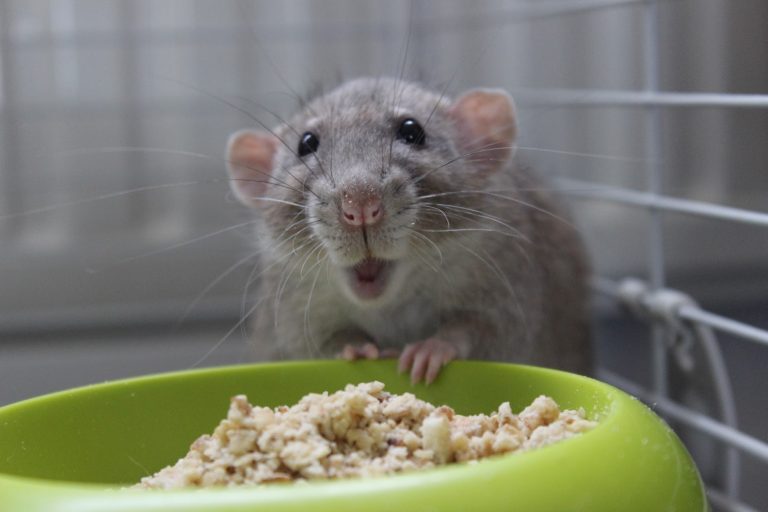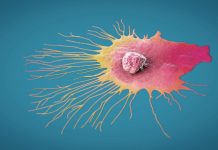
When a naturally occurring metabolite, alpha-ketoglutarate (AKG), was added to the regular diets of middle-aged mice, they remained healthier as they aged, and experienced a dramatically shorter time of disease and disability before they died, when compared with control animals. These are the findings of a double-blind study carried out by a team of researchers at the Buck Institute for Research on Aging.
Reported in Cell Metabolism, the study findings, based on an assessment of clinically relevant markers of healthspan, are a first for research involving mammals, according to the Buck Institute. And plans are now in the works for a clinical trial in people aged 45–65 years
“The standard for efficacy in research on aging is whether interventions actually improve healthspan,” said Gordon Lithgow, Ph.D., a professor at the Buck Institute for Research on Aging, and senior author of the team’s published report. “We’ve reached that mark here with a compound that is naturally produced by the body and is generally shown to be safe … Lithgow says basic research in Caeanorhabditis elegans started AKG’s journey towards human clinical trials, noting that the first evidence that AKG extended lifespan in the microscopic worm came in 2014. “We tested AKG in distinct strains of the worm in 2017 and determined that treatment hit conserved aging pathways in the animals. The fact that it is poised to be rigorously tested in humans just a few years later shows how quickly research can move from the lab bench to the clinic. Never underestimate the knowledge that comes from studying this tiny worm.”
Lithgow and colleagues report on their mouse study in a paper titled, “Alpha-Ketoglutarate, an Endogenous Metabolite, Extends Lifespan and Compresses Morbidity in Aging Mice.”
Aging manifests as a decline in health, multiple organ dysfunction, increased vulnerability to chronic disease, and degraded quality of life,” the authors noted. But while a range of genetic and pharmacologic interventions, which have mostly been identified in non-vertebrate model organisms, can extend lifespan, “… the relationship to healthspan, the disease-free and functional period of life, is unclear.”
Previous studies have shown that blood plasma levels of AKG can drop up to 10-fold as we age. Fasting and exercise, already shown to promote longevity, increase the production of AKG. However, AKG is not found in the normal diet, so supplementation is the only feasible way to restore its levels.
AKG is a key metabolite in the tricarboxylic acid (TCA) cycle, which is involved in many fundamental physiological processes. It contributes to metabolism, providing energy for cellular processes. It helps stimulate collagen and protein synthesis and influences age-related processes including stem cell proliferation. AKG inhibits the breakdown of protein in muscles, making it a popular supplement among athletes. It also has been used to treat osteoporosis and kidney diseases. Prior research has indicated that TCA extends lifespan in both the model organisms C. elegans and Drosophila, the researchers noted. “Due to its broad biological roles, AKG has been a subject of interest for researchers in various fields.”
For the studies, laboratory mice were fed with a regular chow diet, until they reached 540 days of age, and then their diets were supplemented with AKG in the form of a calcium salt (CaAKG). The researchers measured the animals’ lifespan, and assessed healthspan through an evaluation of measurements based on a clinically relevant frailty index.
The results showed that while the mice fed diets supplemented with AKG did experience moderate lifespan extension (the average was around 12%), the measures of healthspan increased by more than 40%. Buck postdoctoral fellow and research lead Azar Asadi Shahmirzadi, Pharm.D, Ph.D., noted that many of the study results were sex specific, with female mice generally faring better than males. Fur color and coat condition were dramatically improved in the treated females.
The animals also saw improvement in gait and kyphosis, a curvature of the spine often seen in aging. Female mice given the AKG supplements also exhibited improvements in piloerection, which involves involuntary contraction of small muscles at the base of hair follicles. “That measure relates to pain and how uncomfortable the animal is,” Asadi said. “The treated animals showed an extended ability to groom themselves.” She further pointed out that male mice treated with AKG were better able to maintain muscle mass as they aged, had improvements in gait and grip strength, less kyphosis, and exhibited fewer tumors and better eye health.
Interestingly, the data indicated that AKG supplementation reduced chronic inflammation and induced IL-10 in the T cells of female animals. “We find that CaAKG promotes a longer, healthier life associated with a decrease in levels of systemic inflammatory cytokines,” the investigators wrote. “We propose that induction of IL-10 by dietary AKG suppresses chronic inflammation, leading to health benefits.”
“The mice that were fed AKG showed a decrease in levels of systemic inflammatory cytokines,” said Asadi. “Treatment with AKG promoted the production of Interleukin 10 (IL-10) which has anti-inflammatory properties and helps maintain normal tissue homeostasis. Chronic inflammation is a huge driver of aging. We think suppression of inflammation could be the basis for the extension of lifespan and probably healthspan, and are looking forward to more follow up in this regard.” It was also notable that starting CaAKG administration at 18 months of age had robust effects in the mice. “This is valuable, as human clinical studies are likely to be initiated at a similar relative age,” the team noted. “If translated to humans, this effect would be highly desirable, extending lifespan, but more importantly, reducing the debilitating period of functional decline and disease management.” And importantly, there was no evidence that AKG had adverse effects in mice. “We observed no significant adverse effects upon chronic administration of the metabolite, which is very important,” Asadi noted.
Lithgow pointed out that the ultimate goal is to compress the time of disease and frailty as we age. “The nightmare scenario has always been life extension with no reduction in disability. In this study, the treated middle-aged mice got healthier over time. Even the mice that died early saw improvements in their health, which was really surprising and encouraging.”
Researchers say the consistent longevity effects of AKG in yeast, the nematode worm C. elegans, and now mice, show that the metabolite is affecting an evolutionary conserved aging mechanism that is likely to be translational to humans. A clinical trial of AKG involving 45 to 65 year olds is being planned at the Centre for Healthy Longevity at the National University of Singapore (NUS). “This trial will look at the epigenetic clock as well as standard markers of aging, including pulse wave velocity, and inflammation among others,” said Buck professor Brian Kennedy, PhD, who is also the director of the Centre at NUS and senior co-author of the study. “This opportunity will allow us to go beyond anecdotal evidence. Real clinical data will help inform physicians and consumers eager to improve health within the context of aging.”













